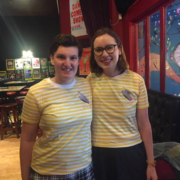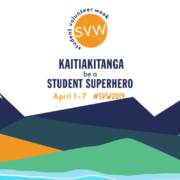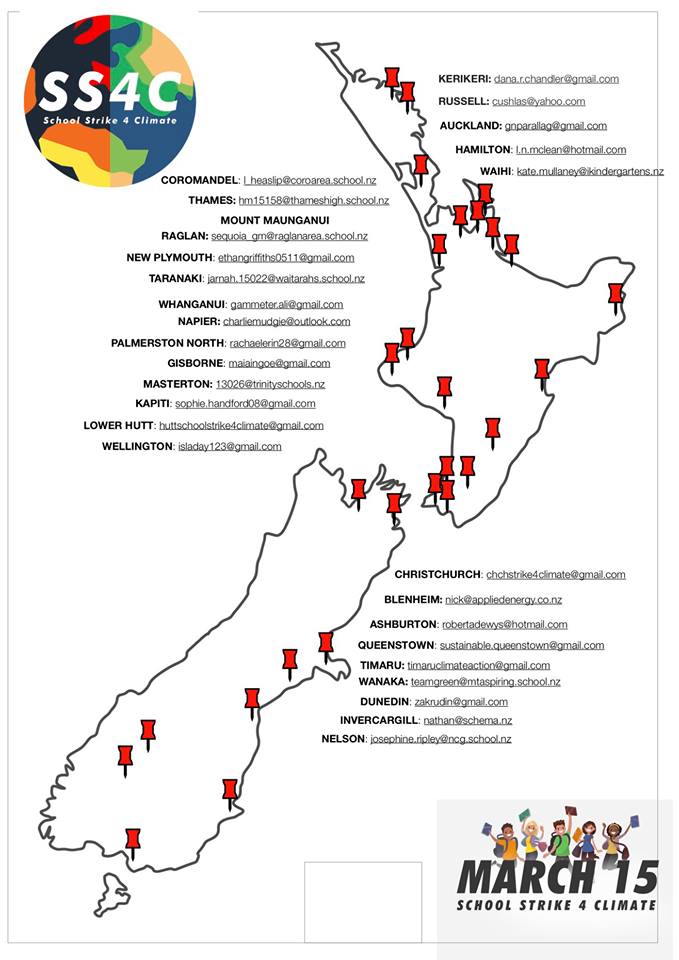School students all across the country are striking to urge action on climate change. Volunteering New Zealand interviewed two organisers of the strikes.
On March 15th, school students across the
nation will strike for climate action. They are supported by parents, teachers, environmental researchers
and the Children’s Commissioner.
Young people around the world are showing incredible leadership on the issue of climate change. The strike is an example of active citizenship, and a demonstration that young people are prepared to face up to the defining issue of their generation.
The strikes take place in the lead up to
Student Volunteer Week. Our focus this year is Kaitiakitanga, the guardianship
of our environment. Student volunteers are instrumental to this guardianship,
and are at the forefront of advocating for environmental protection and carbon
neutrality. Student Volunteer Week is an opportunity to celebrate student
volunteering and encourage more opportunities to join the volunteering
movement. The students striking this week, just like other young environmental
volunteers across the nation, exemplify Kaitiakitanga in action. Find out how
to get involved in Student Volunteer Week here.
We reached out to two organisers of the strikes, Sophie Handford, and Molly Doyle, to share their perspectives on the strike, kaitiakitanga, and how to create positive change. We hope their words can offer support motivation to other young people working to ensure a healthy and livable planet.
Sophie
Handford – National Coordinator
Q What motivated you to organise these strikes?
I want a safe and secure future for not only my generation but generations to come. I think that we have a real chance here to take control of the conversation around our future. We are the ones who will inherit this earth. We deserve to have a say about the kind of future we have, which at this stage could be non-existent unless we stand up and show the politicians how important this is to us
Q Why is kaitiakitanga important to you?
I think the word kaitiakitanga represents something so crucial. So often, I feel like we fall into the trap of thinking this earth is ‘ours’ and we fail to understand the role we must play in our relationship with the earth. We must act as its guardian so we can give others the opportunity to do the same.
Q What advidce could you give to other students trying to make a positive impact?
The advice I would give is to take that first step! Once you get started, it becomes so much easier. There will be roadblocks along the way that you’ll encounter but envisage the positive impact you want to have and just keep that front of mind. Don’t give up!
Molly
Doyle, National Committee Member
Q What motivated you to organise these strikes?
Our earth is precious – it’s our home. And I want to retain its beauty. I want to know the oceans are clean without plastic. I want to know the air we breathe is not polluted.
And I want it to stay beautiful for future generations. These strikes are the start of our generations move to a cleaner more sustainable future.
We have the ability to educate our generation about the impacts of climate change. We have the ability to show higher levels of power that we do care, and we value our environment. We have the chance to get together to make a positive impact.
Q Why is kaitiakitanga important to you?
Growing up in such a beautiful country I’ve learned that I am always appreciative of my natural surroundings. I see great value in looking after what we currently have. No matter where you are in the world you have a given responsibility to keep the environment clean. I can’t emphasize how important kaitiakitanga should be for these living generations. We are currently walking blind eye into a future that doesn’t hold the environmental capability of looking after us. We need to reverse that conception of the future, and know that we do care, and we will demonstrate everything in our power to be the change we want to see.
Q What advidce could you give to other students trying to make a positive impact?
My advice would have to be the change you want to see. I don’t see a positive future if people are still relying on others to make the difference. You really have to gain consciousness for your surroundings and seek to learn the impacts of your current actions.
We have the ability to make this change, so go out and do it!





